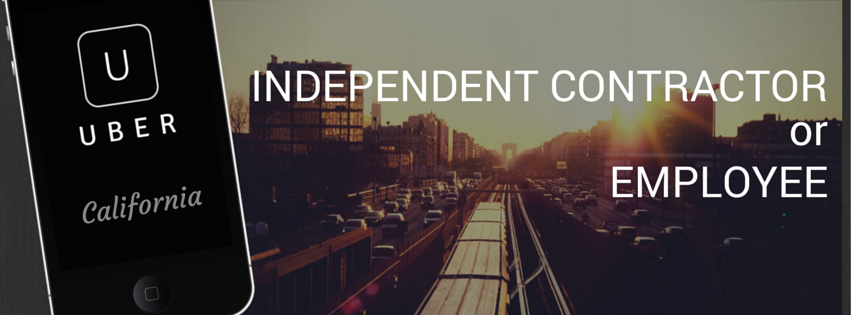I recently received an e-mail from DeAnne Chase of Chase Law Group on the topic of CA litigation regarding the employment status of Uber workers. This is a timely resource as this was a topic of discussion at a Torrance Chamber meeting where I spoke on the topic “Is Your Worker a 1099 Contractor or Employee?” and one of the attendees who works for a taxi company said that they are considered employees and did’t understand why Uber could categorize workers as freelance contractors based on the amount of control it has over the drivers.
There are quite a few factors that the IRS and states look at to determine worker classifications including behavioral control, financial control and relationship of the parties. The more control the business has over a worker including expected performance, the more likely the worker is actually an employee and not a contractor.
The article discusses how the recent decision by the California Labor Commissioner’s Office could impact virtually every industry. The Commissioner’s decision to classify a San Francisco based Uber driver as an employee underscores a controversial and contested issue about what constitutes an employee and fundamentally affects the economic foundations of Uber’s business model, which defers insurance, taxes, medical benefits and other usual employment-related costs to its drivers.
The general rule in California is that someone who hires an independent contractor to perform a job may direct the end result of that job, but not the means and processes of performing the task or producing the result. Some of the criteria that California courts have used to evaluate this issue include:
- whether the work is part of the employer’s regular business
- whether the employer or worker contributes the devices or physical space for the worker to perform tasks
- whether the work is performed under the direction of the hiring party with the principal providing instruction as to when, where and how to perform the task
- the potential longevity of the working relationship
- the length of time for execution of services, and
- the degree of authority exercised by the employer over the worker
In the Uber case, the Commissioner held that because Uber plays a controlling role in every aspect of the business- namely, screening its drivers, establishing ride prices, deterring drivers from accepting tips, requiring specific types of cars for service and discharging drivers who fall below a certain rating – the driver should be characterized as an employee. Furthermore, the Commissioner gave great weight to one of the factors affecting worker classification by finding that the services provided by Uber’s drivers are “integral” to Uber’s business, such that it would not be able to conduct its business operations without them.
Businesses in California and around the country need to be aware that the tide is turning away from the hiring of independent contractors, and the penalties for “misclassification” can be harsh. For more information on factors used to determine employment status, see prior posts:
- Employee VS Contractor Part 1 (Costs): https://affordablebookkeepingandpayroll.com/?p=1001
- Employee VS Contractor Part 2 (Determining Factors): https://affordablebookkeepingandpayroll.com/?p=1010
- Employee VS Contractor Part 3 (Behavioral Control): https://affordablebookkeepingandpayroll.com/?p=1017
- Employee VS Contractor Part 4 (Financial Control): https://affordablebookkeepingandpayroll.com/?p=1034
- Employee VS Contractor Part 5 (Type of Relationship): https://affordablebookkeepingandpayroll.com/?p=1044
If you need to talk to legal counsel surrounding this issue, contact DeAnne Chase of the Chase Law Firm. DeAnn earned her law degree from Southwestern University School of Law in 1996, and her bachelor’s degree from the University of California, Berkeley in 1993. She is a member of Benjamin Aranda Inns of Court, the Los Angeles County Bar Association and the South Bay Bar Association. She can be reached at Tel: 310.545.7700 or http://www.chaselawmb.com/contact/.
